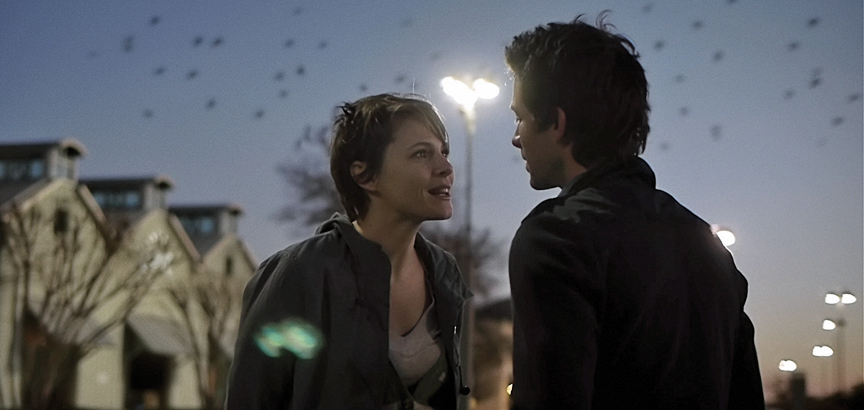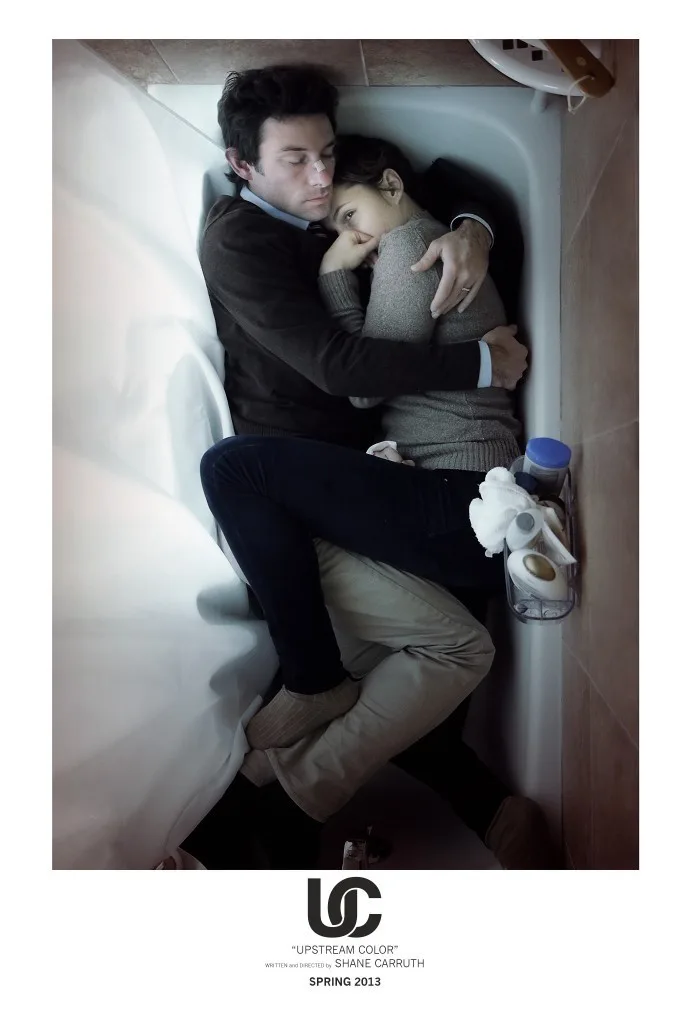A romance, a thriller, and a science-fiction drama, “Upstream Color” tantalizes viewers with an open-ended narrative about overcoming personal loss. It’s the long-awaited follow-up to the equally sophisticated 2004 time travel drama “Primer” by American indie wunderkind Shane Carruth, and it’s every bit as good. A young couple are connected by a singular, mysterious experience, a form of hypnosis caused by body-snatching maggots that alienates them from everyone around them.
“Upstream Color” is about pattern recognition, but it’s also about how a couple’s inexplicable attraction is fostered by (shared?) trauma. Immediately after Kris (Amy Seimeitz) is introduced, she’s abducted and, for lack of a better word, hypnotized. For reasons that are never made explicit, a thief subjects Kris to mind-and-body-controlling maggots. The experience completely throws her routine out of whack: She loses her job, and bankrupts herself without knowing why. Once that ordeal is over, she finds herself weirdly drawn to Jeff (Carruth), a man she initially feels no connection with, but soon can’t stop bumping into.
Post-brain-washing, Kris and Jeff’s intertwined lives are presented through a drunken haze. Their relationship develops at a brisk pace, and while it’s ambiguous to what extent Jeff and Kris have had the same thing happen to them, the two keep bumping into each other. Their motives are not always clear, even to themselves, but that’s because they’re never not struggling to figure out what’s happened to them, and why everything now seems alien and menacingly opaque.
Kris and Jeff’s bond is established and developed by small, telling gestures. Carruth bombards viewers with information, but he does this in small, unassuming ways, like the first time Kris hears Jeff describe a scene from his childhood. While they eat dinner, Jeff tells a story from his past. Kris interjects a detail, then lets him excitedly continue while she quietly wonders why his past sounds just like her own. This is the first of several conversations where Kris and Jeff seem to share each other’s memories. In a later even, Jeff describes with photographic accuracy exactly where in his old office building Kris is as she tries to exit. And in an even later scene, after several heated conversations about grackles and starlings (it might also be just one conversation that goes in several different directions) Kris accuses Jeff of confusing his memories with hers. Eventually, it’s uncertain whether Kris is retracing Jeff’s steps, or vice versa.
The complex bond between the two characters is defined by questions that they don’t ask each other, and gestures that don’t have meaning outside the relationship itself. “Upstream Color” is about how, once co-dependent attachments are formed, people create new contexts for their lives, effectively distancing themselves from their identities as individuals. Kris and Jeff aren’t just themselves anymore, they’re a couple, redefined by their shared experiences, including those from before they met — like when Jeff connects himself with Kris by describing what it was like to be ostracized by his peers after making bad business decisions that even he can’t fully explain.
It’s unclear how Kris and Jeff are linked to Sampler (Andrew Sensenig), a man who runs a pig farm and makes ambient noise music by distorting natural sounds on a synthesizer, or how Sampler facilitates the growth of the maggots. But finding answers to these questions is of secondary importance compared to watching the effect that certain triggers, like the color blue, or passages from Thoreau’s “Walden,” have on Kris and Jeff. As a couple, Kris and Jeff advance towards a new future together, one characterized by abstraction, but defined by a genuine sense of wonder.




















